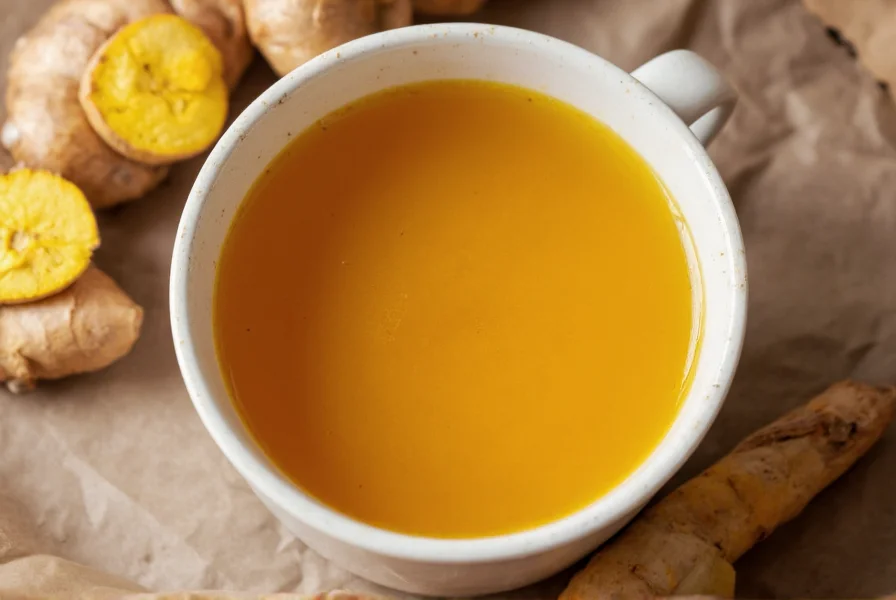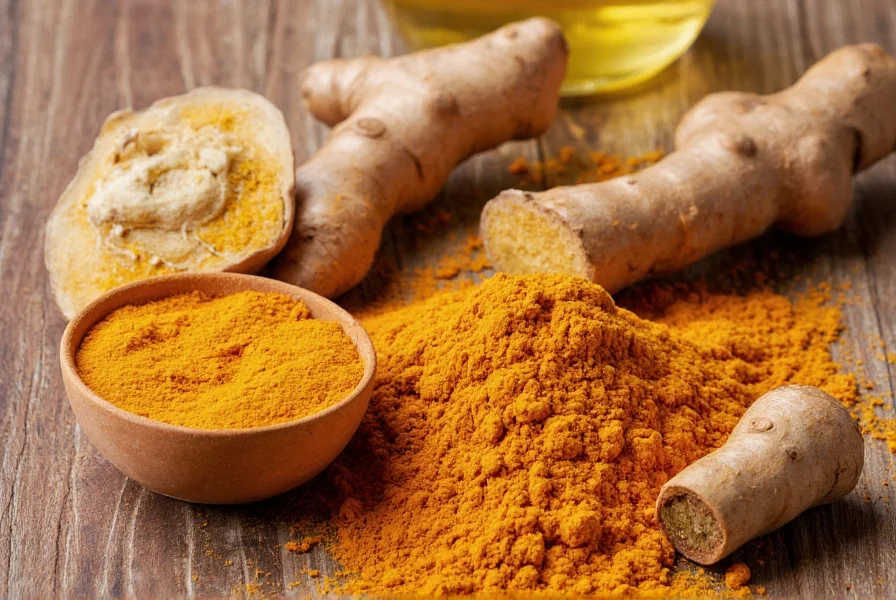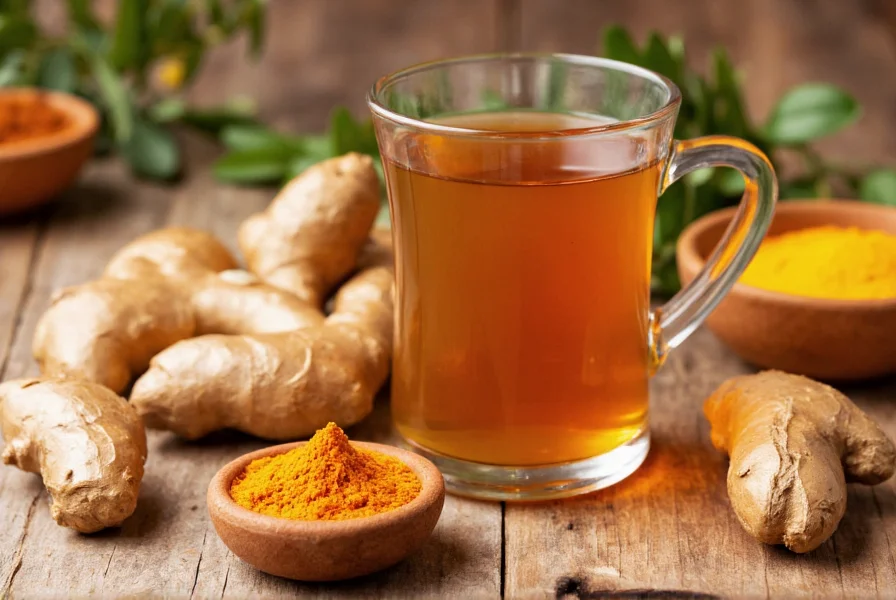For centuries, traditional medicine systems across Asia have utilized turmeric and ginger for their therapeutic properties. Modern science is now validating many of these traditional uses, particularly when these potent roots are combined in tea form. This comprehensive guide examines what current research actually says about the health effects of this popular herbal beverage.
The Science Behind Turmeric and Ginger
Turmeric contains curcumin, a polyphenol with powerful anti-inflammatory and antioxidant properties. Ginger's primary active compound, gingerol, demonstrates similar effects with additional benefits for digestive health. When combined in tea, these compounds create a synergistic effect that enhances their bioavailability and effectiveness.

Five Evidence-Based Health Benefits
1. Inflammation Reduction
Chronic inflammation contributes to numerous health conditions. A 2021 review in Nutrients found that curcumin significantly reduces inflammatory markers like C-reactive protein. Ginger compounds work through different pathways, making their combination particularly effective for managing everyday inflammation. People with arthritis often report reduced joint pain after regular consumption, though effects vary by individual.
2. Digestive Support
Ginger has long been used to alleviate nausea and support digestion. Research published in Food Science & Nutrition confirms ginger's ability to accelerate gastric emptying. Turmeric stimulates bile production, aiding fat digestion. Together in tea form, they create a gentle digestive tonic particularly beneficial before or after meals.
| Active Compound | Primary Health Effects | Research Status |
|---|---|---|
| Curcumin (Turmeric) | Anti-inflammatory, antioxidant, potential cognitive support | Strong evidence for inflammation reduction |
| Gingerol (Ginger) | Digestive support, nausea reduction, anti-inflammatory | Strong evidence for digestive benefits |
| Combined Effect | Enhanced bioavailability, synergistic anti-inflammatory action | Emerging research shows promising results |
3. Immune System Modulation
Both ingredients demonstrate immunomodulatory effects rather than simply "boosting" immunity. A 2020 study in Journal of Medicinal Food showed curcumin helps regulate immune response, potentially reducing severity of seasonal illnesses. Ginger's antimicrobial properties provide additional protection. This makes turmeric ginger tea particularly valuable during seasonal transitions.
4. Antioxidant Protection
Oxidative stress contributes to aging and chronic disease. The combination provides diverse antioxidants that protect cells from damage. Research in Antioxidants indicates this dual approach targets multiple free radical types more effectively than either ingredient alone.
5. Metabolic Health Support
Preliminary research suggests potential benefits for blood sugar regulation and cholesterol management. A 2019 clinical trial found participants who consumed ginger and turmeric supplements showed modest improvements in metabolic markers. While tea concentrations are lower, regular consumption may contribute to long-term metabolic health as part of an overall healthy lifestyle.

Maximizing Benefits: Practical Consumption Guide
To experience these benefits, preparation matters. Here's what research suggests:
- Optimal daily amount: 1-2 cups daily provides sufficient compounds without risk of side effects for most people
- Best preparation: Simmer fresh or dried roots for 10-15 minutes; add black pepper to increase curcumin absorption by up to 2000%
- Timing: Morning consumption supports digestion throughout the day; evening consumption may promote relaxation
- Enhancements: Adding healthy fats (like coconut milk) further improves curcumin absorption
Important Considerations and Limitations
While generally safe, certain individuals should exercise caution:
- People taking blood thinners should consult doctors due to turmeric's mild anticoagulant properties
- Those with gallbladder issues may experience discomfort from turmeric's bile-stimulating effects
- Pregnant women should limit ginger intake to 1 gram daily (approximately one cup of strong tea)
- Benefits are generally modest and develop over consistent, long-term use
- This tea complements but doesn't replace medical treatment for serious conditions
Realistic expectations are crucial. While turmeric ginger tea offers multiple health advantages, it's not a miracle cure. The most significant benefits occur when incorporated into an overall healthy lifestyle including balanced nutrition and regular exercise.
Creating Your Perfect Turmeric Ginger Tea
For maximum benefit, try this research-informed preparation method:
- Peel and slice 1-inch pieces of fresh turmeric and ginger root
- Simmer in 2 cups of water for 10-15 minutes (longer for stronger tea)
- Add a pinch of black pepper and 1/2 teaspoon coconut oil or milk
- Strain and add lemon or honey to taste
- Consume within 30 minutes for optimal compound availability
This preparation method maximizes the bioavailability of active compounds while creating a soothing, flavorful beverage. For those using dried powders, 1/2 teaspoon of each plus black pepper yields similar benefits.
Conclusion: A Valuable Addition to Wellness Routines
Turmeric and ginger tea represents a scientifically supported addition to daily wellness practices. Its anti-inflammatory, digestive, and immune-modulating properties make it particularly valuable in our modern stress-filled environment. While not a cure-all, regular consumption contributes to overall health maintenance when approached with realistic expectations. As research continues to evolve, this ancient remedy demonstrates remarkable alignment with contemporary understanding of preventive health.
Frequently Asked Questions
How often should I drink turmeric ginger tea for health benefits?
For most adults, 1-2 cups daily provides optimal benefits without risk of side effects. Consistency matters more than quantity—daily consumption over weeks and months yields the best results. Those with specific health concerns should consult healthcare providers about appropriate amounts.
Can turmeric ginger tea help with weight loss?
While not a weight loss solution, turmeric ginger tea may support metabolic health as part of a comprehensive approach. Some studies suggest ginger may modestly increase thermogenesis, and both ingredients support healthy inflammation levels which can indirectly affect metabolism. Significant weight loss requires dietary changes and exercise, not just tea consumption.
When is the best time to drink turmeric ginger tea?
Morning consumption supports digestion throughout the day, while evening consumption may promote relaxation. Some people prefer it before meals to stimulate digestion, while others enjoy it after meals to reduce bloating. Avoid drinking large quantities on an empty stomach if you have sensitive digestion. Consistency matters more than specific timing for long-term benefits.
How long does it take to notice benefits from turmeric ginger tea?
Most people notice digestive improvements within a few days of regular consumption. Anti-inflammatory effects typically become noticeable after 2-4 weeks of consistent daily use. Full benefits develop gradually over months of regular consumption. Individual responses vary based on overall health, diet, and lifestyle factors.
Can I drink turmeric ginger tea while taking medications?
Consult your healthcare provider if you take blood thinners, diabetes medications, or blood pressure medications, as turmeric and ginger may interact with these. The compounds in this tea can enhance the effects of certain medications. Most healthy individuals can safely consume moderate amounts, but those on prescription medications should seek professional advice before regular consumption.











 浙公网安备
33010002000092号
浙公网安备
33010002000092号 浙B2-20120091-4
浙B2-20120091-4